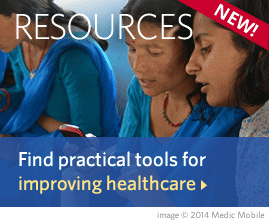Dans le 28 ans depuis la Conférence internationale sur la population et le développement, il y a eu des progrès remarquables sur divers aspects de la sexualité et de la procréation des adolescents…
En savoir plus...Affichage des résultats pour: Leadership et changement
La série de podcasts, Adolescents en crise: des voix inouïes, est une série de podcasts en cinq parties qui met en lumière des millions d'adolescents à travers le monde…
En savoir plus...L'Organisation mondiale de la santé (OMS) sexuel, reproducteur, la santé de la mère, nouveau née, santé de l'enfant et de l'adolescent (SRMNCAH) le référentiel de documents de politique comprend près de 5,000 documents d'environ 140…
En savoir plus...Depuis plus d'une décennie, SMART Advocacy a permis aux individus et aux groupes de mettre en œuvre le plaidoyer et d'alimenter les progrès. Avec le plaidoyer SMART, la Planification Familiale Avancée…
En savoir plus...Dans le contexte de la poursuite de la pandémie de COVID-19, L'ICAP et la Columbia Mailman School of Public Health ont commémoré la Journée mondiale de lutte contre le sida 2021 avec un événement…
En savoir plus...Le COVID-19 a forcé les systèmes de santé mondiaux à s'adapter à des contextes en évolution rapide, utiliser de nouvelles méthodes de prestation de services, et compter sur de nouveaux partenariats de collaboration à travers…
En savoir plus...Le Centre Johns Hopkins pour les programmes de communication (PCC) Le tableau de bord COVID Behaviors présente les données d'une enquête mondiale sur les connaissances, attitudes et pratiques autour de la COVID-19, le…
En savoir plus...Les Global Health Compassion Rounds sont un rassemblement trimestriel d'une communauté mondiale pour partager des expériences, défier les idées, et susciter une réflexion sur la compassion dans le monde…
En savoir plus...Le BMJ, en partenariat avec le Harvard Global Health Institute, a lancé une collection d'articles explorant comment parvenir à une couverture sanitaire universelle efficace (CHU).…
En savoir plus...Deux domaines de notre travail ont considérablement évolué ces dernières années : les systèmes de santé et les services adaptés à l'AYSRH. En réponse à ces changements, c'est l'occasion de…
En savoir plus...





